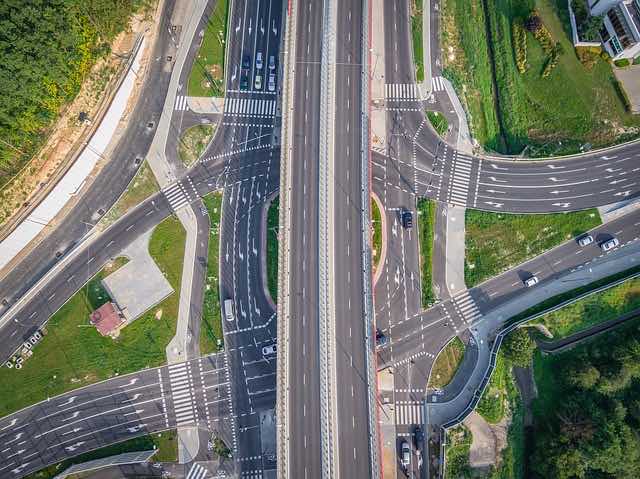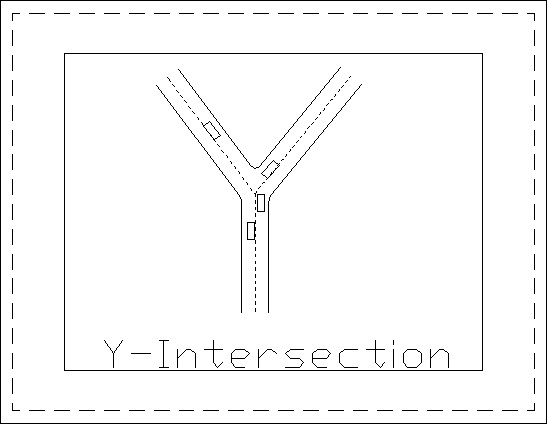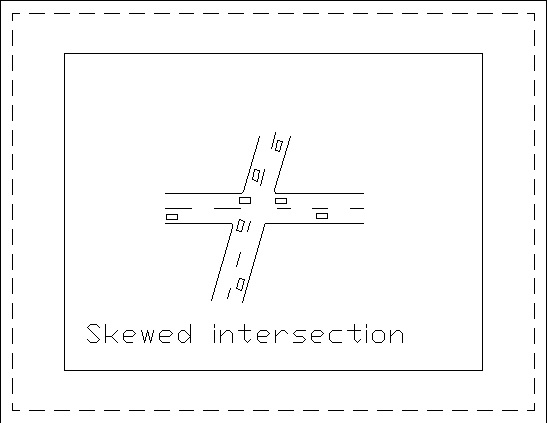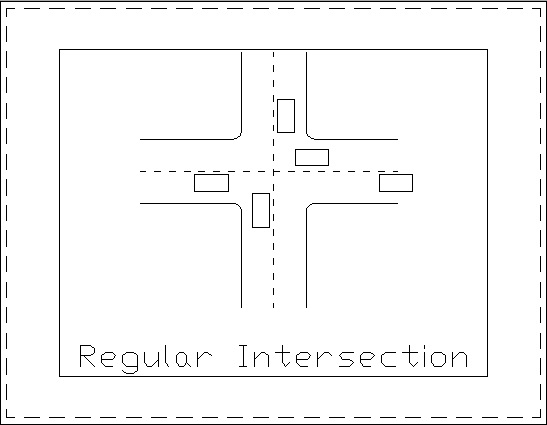Types of Road Intersections and Highway Crossings

Intersection also commonly known as crossroad is any place where two or more than two roads intersect or meet each other at grade. According to a source there are total 973 intersections in Karachi City. Intersections may be signalized or non-signalized, may or may not have a roundabout.
The intersections encompassed by a roundabout are considered as safe intersections. The efficiency of an intersection is determined on the basis of how well an intersection accommodates the demands of all road users. The performance of a signalized intersection is judged on the basis of its signal timings.
Also See: Road Types
Classification of Road Intersections on the basis of number of roads intersecting:
3-Way Intersection:
Also known as  T or
T or  Y Junction is the linking of three roads.
Y Junction is the linking of three roads.
4-Way Intersection:
These are the most common intersections where crossing over of two roads is involved. It is further divided into two categories depending on the angle by which the two roads intersect each other.


When the two joining roads intersect each other perpendicularly, it is termed as a Regular Intersection. When the two roads cross at a different angle the junction is called a Skewed Intersection.
5-Way Intersection:
Crossing over of five roads.
6-Way Intersection:
Involves the crossing of three streets; most often a crossing of two perpendicular streets and a diagonal street.
More than six roads coming together at a single intersection are rare.
Staggered Intersection:
Consists of two successive T junctions
Classification of Road Crossings on the basis of Traffic Control
Uncontrolled Intersection is a junction without signs or traffic signals. In such junctions the right of way belongs to the vehicle on the major road in case of a 3-way intersection and the traffic on the right in case of 4-way intersections. However the priorities vary for different countries. An uncontrolled intersection reduces delays but maximizes the chances of collisions especially if the junction has a high volume of traffic.
Controlled Intersections are either signalized or regulated by means of a roundabout or traffic signs.
Manually Controlled Intersections are junctions that are controlled by traffic police. This is usually practiced on low volume intersections.
Traffic signals are installed at relatively high traffic volume intersections. The traffic signals define a clear right of way to the drivers and thus improve the mobility of the traffic at such high volume intersections. For low volume junctions, generally the installation of traffic signs or roundabouts assures fine serviceability. Traffic signals are more commonly seen in the case of 4-way intersections.
High or low volume intersections if not controlled properly are considered the most risky locations in terms of conflicts. The intersections become more hazardous when they are located just near the ending or starting of a flyover/underpass, as the driver is in the ascending or descending mode and thus faces difficulties in controlling the vehicle as it approaches the intersection. There are various road traffic safety signs to warn the road users about the approaching intersection to reduce the chances of collisions. These signs also put in the picture about the type of intersection that is about to appear to further spell out the road geometry to the driver.












